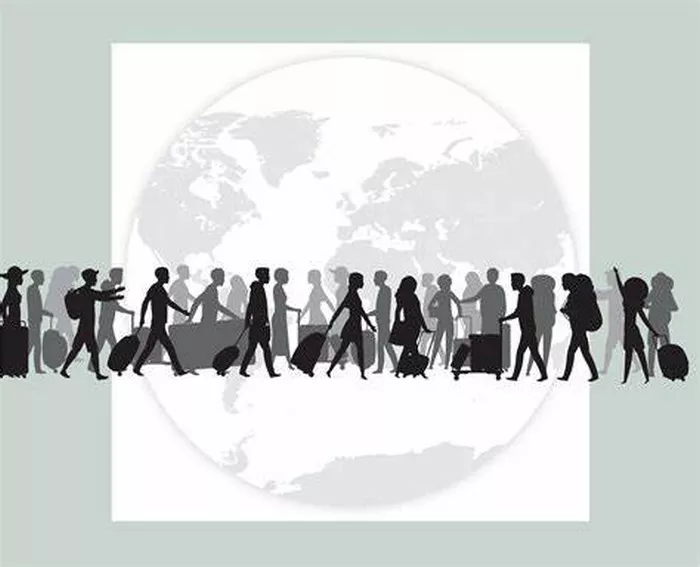Economic immigration, often referred to as economic migration, is a phenomenon where individuals migrate from their home countries to another country primarily for employment opportunities and economic advancement. Unlike refugees or asylum seekers who flee persecution or conflict, economic immigrants typically relocate voluntarily to seek better living standards, career prospects, or entrepreneurial opportunities.
Types of Economic Immigration
Economic immigration can be categorized into several types based on the nature of employment or economic activity involved:
Skilled Workers and Professionals: Many countries prioritize skilled workers and professionals with specific qualifications, work experience, or specialized skills that are in demand locally. These immigrants contribute to sectors such as healthcare, information technology, engineering, and finance.
Entrepreneurs and Investors: Some countries encourage economic immigration through programs that attract entrepreneurs and investors. These individuals often bring capital, innovative ideas, and job creation opportunities to the host country’s economy.
Seasonal Workers: Agricultural and seasonal workers are often employed temporarily to meet seasonal labor demands in industries such as agriculture, tourism, and hospitality. These programs allow businesses to address short-term labor shortages.
Graduate and Post-Graduate Students: Economic immigration pathways may also include provisions for international students who have completed their studies and wish to stay in the country to work and contribute their skills to the economy.
Family Members of Economic Immigrants: Family reunification policies often allow the spouses, partners, and dependent children of economic immigrants to join them in the host country, supporting social integration and stability.
Benefits of Economic Immigration
Economic immigration offers several benefits to both the host country and the immigrants themselves:
Skills and Innovation: Immigrants bring diverse skills, expertise, and innovative ideas that contribute to economic growth, competitiveness, and technological advancement in the host country.
Labor Market Demands: Economic immigration helps address labor shortages in key sectors, ensuring that businesses have access to the workforce needed to sustain growth and productivity.
Economic Contribution: Immigrants often contribute to the host country’s economy through taxes, consumer spending, and entrepreneurial ventures, stimulating economic activity and creating jobs for locals.
Cultural Diversity and Social Cohesion: Immigration enriches cultural diversity, fosters understanding between different communities, and promotes social cohesion through shared experiences and mutual respect.
Global Talent Pool: Access to a global talent pool allows businesses and industries in the host country to recruit individuals with specialized skills that may be scarce domestically, enhancing overall productivity and competitiveness.
Challenges and Considerations
While economic immigration offers significant benefits, it also presents challenges that policymakers and stakeholders must address:
Integration and Social Cohesion: Successful integration of immigrants into the host society requires investments in language training, cultural orientation, and support services to facilitate social inclusion and reduce potential social tensions.
Labor Market Integration: Matching immigrant skills with local labor market needs can be complex, requiring effective job placement programs, recognition of foreign qualifications, and bridging programs to facilitate entry into regulated professions.
Policy and Regulatory Frameworks: Clear and transparent immigration policies, regulations, and procedures are essential to manage economic migration flows effectively, maintain public trust, and ensure fair treatment of immigrants.
Public Perception and Political Discourse: Immigration policies often spark debate and controversy, reflecting concerns about job displacement, wage suppression, and cultural assimilation. Effective communication and evidence-based policymaking are crucial to address these concerns.
Economic Downturns and Job Market Fluctuations: Economic downturns or fluctuations in job markets can affect the demand for immigrant labor, necessitating flexibility in immigration policies and responsive measures to support both immigrants and local workers.
SEE ALSO: WHO CAN APPLY ADVANCE PAROLE? ELIGIBILITY & BENEFITS
Examples of Economic Immigration Policies
Different countries implement diverse economic immigration policies tailored to their economic needs, demographic trends, and social priorities:
Canada: The Canadian Express Entry system prioritizes skilled immigrants based on factors such as education, work experience, and language proficiency, aiming to meet labor market demands across provinces and territories.
Australia: Australia’s General Skilled Migration program invites skilled workers to apply for permanent residency based on occupation-specific criteria and a points-based assessment system that evaluates age, qualifications, and English language proficiency.
Germany: Germany’s Blue Card scheme facilitates the immigration of highly skilled non-EU citizens to work and reside in the country, particularly in sectors facing skill shortages such as engineering, IT, and healthcare.
United States: The H-1B visa program allows U.S. employers to temporarily hire foreign workers in specialty occupations that require theoretical or technical expertise. It plays a crucial role in attracting skilled professionals to industries like technology and healthcare.
United Kingdom: The UK’s Tier 1 (Entrepreneur) visa and Tier 2 (General) visa programs enable entrepreneurs, investors, and skilled workers to live and work in the UK, contributing to the economy through business innovation and professional expertise.
Conclusion
Economic immigration is a multifaceted phenomenon that shapes global labor markets, economic development, and cultural diversity. By attracting skilled workers, entrepreneurs, and investors, countries can harness the benefits of international talent to drive innovation, address labor market needs, and promote economic growth. However, effective policy frameworks, integration strategies, and public dialogue are essential to maximize the positive impacts of economic immigration while addressing associated challenges and ensuring social harmony. As global economic dynamics continue to evolve, the role of economic immigration in shaping prosperous and inclusive societies remains pivotal.


